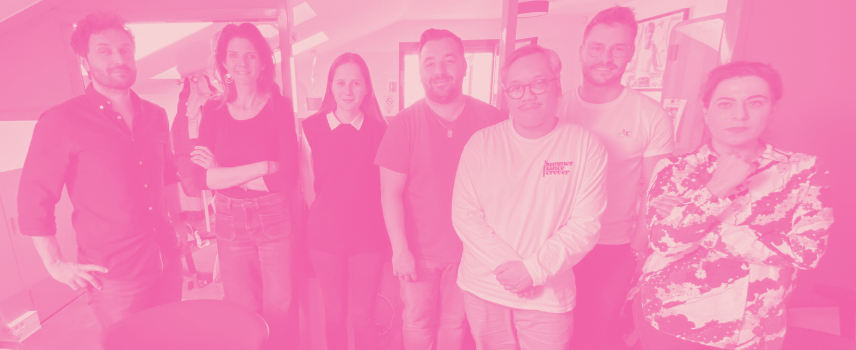Label glossaries

Hello everyone !
We are very often asked how to find our way through the jungle of labels that label the products that can be found in stores. What is recyclable? What is made from recycled materials? Or which ones are organic?
This month, we invite you to go in search of these labels to better understand them.
So here is a small explanatory inventory of these logos that you must have seen at least once 🙂
eco-labels, the officials
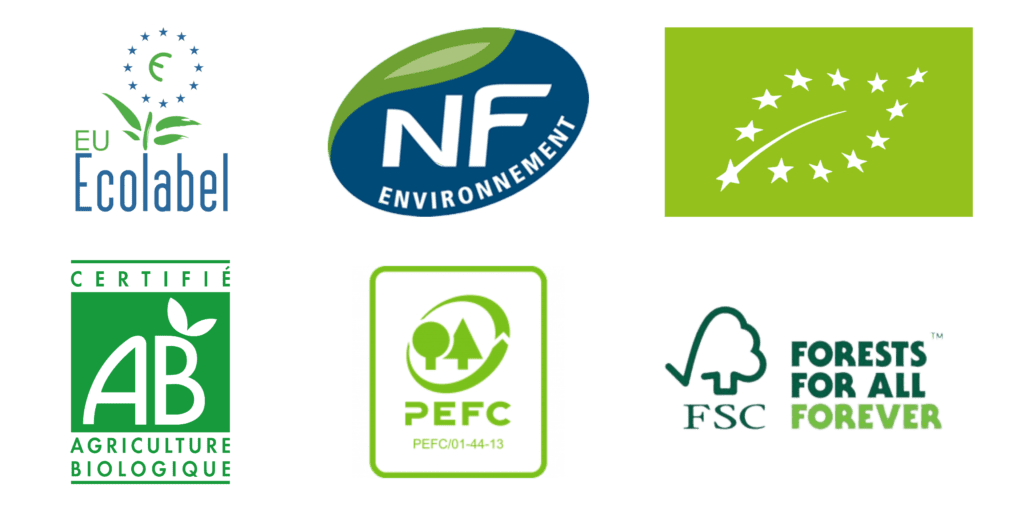
All these labels are labels officials (in order european ecolabel, nf environnement, european organic label, french organic farming label, endorsement of the forest certification, forest stewardship council). That is to say that they are recognized by the public authorities (in Europe and France in any case), they must be independent, have specifications, an accredited certifying body and certificates of conformity.
On the other hand, they can have their limits because they are sometimes confined to the legislation in force, so organic does not mean without pesticides, abused or caged animals.
If you want to go further there are others, more strict among:
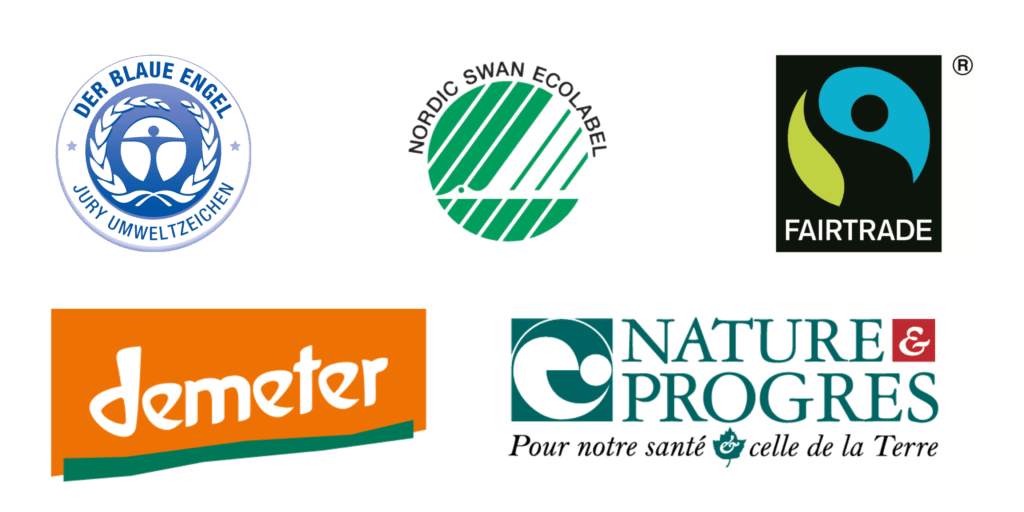
(the Blue Angel, Nordic Swan, Demeter, nature & progress)
We have also added Fair trade, which does not necessarily guarantee organic, but is the most recognized worldwide for ethical aspects.
The traps, don't necessarily mean what you think

Triman is the official logo that follows a Grenelle environment forum, it just means that your product is recyclable. It does not have a great meaning, but it is mandatory on all recyclable products. It is often accompanied by more or less detailed sorting instructions but which may vary locally.
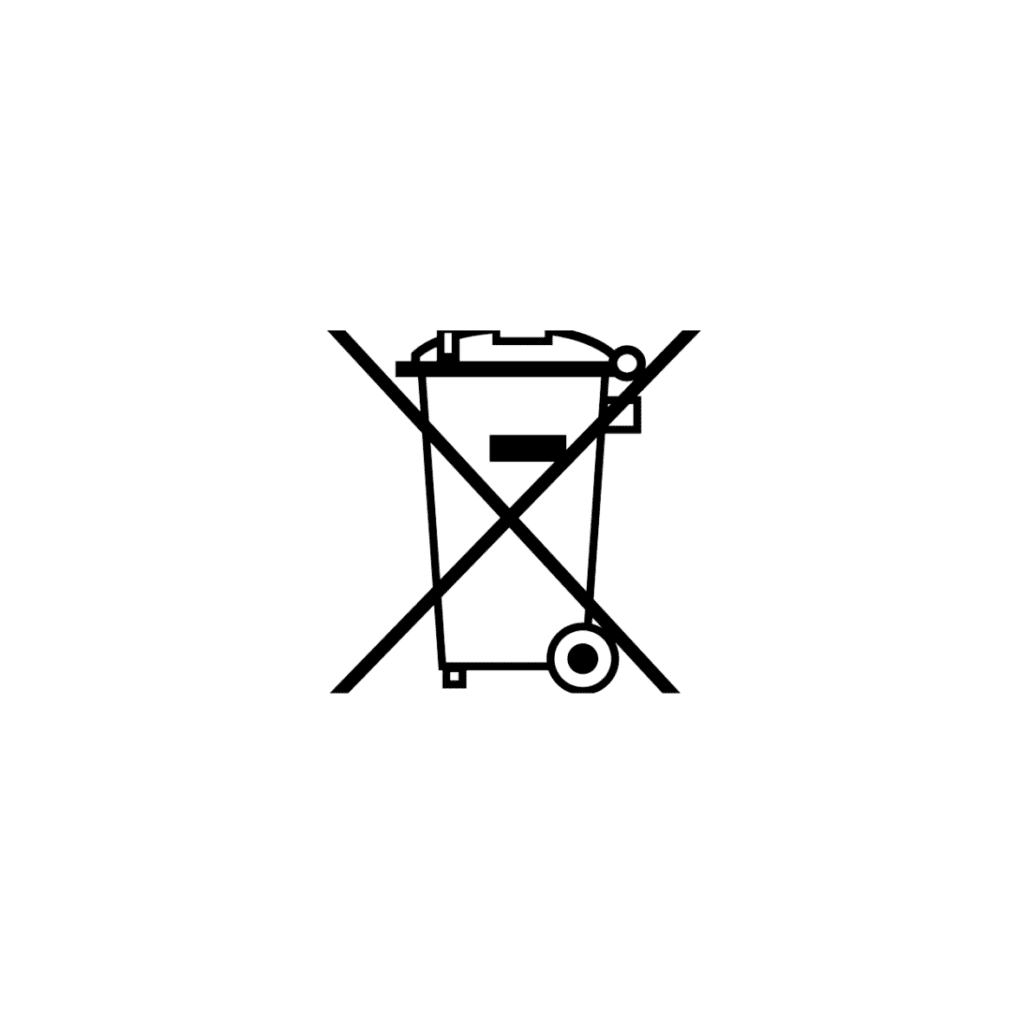
The crossed-out bin means that the waste must not be thrown in the bin, but brought to a selective collection point, it helps with sorting.
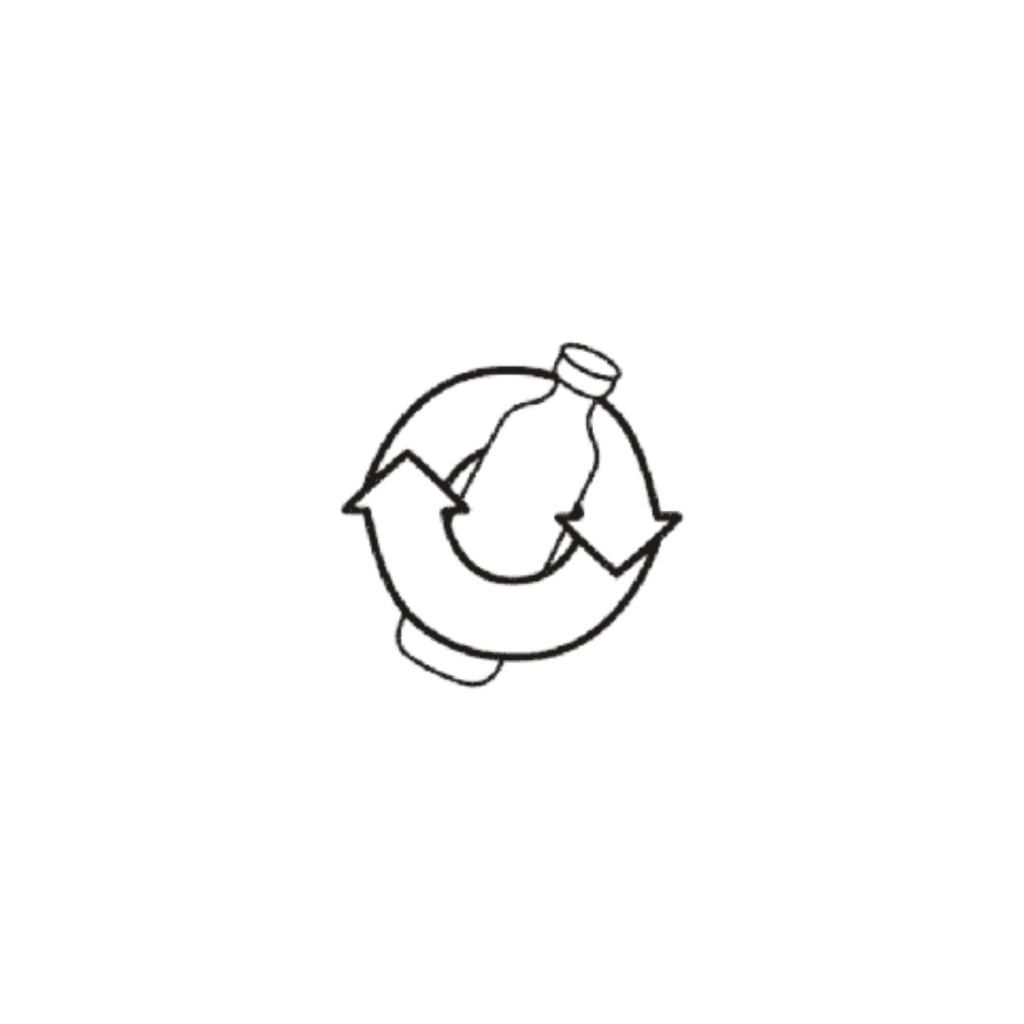
This symbol means that your glass is recyclable (and not made from recycled glass), provided that you always put it in a glass container and not in the trash.
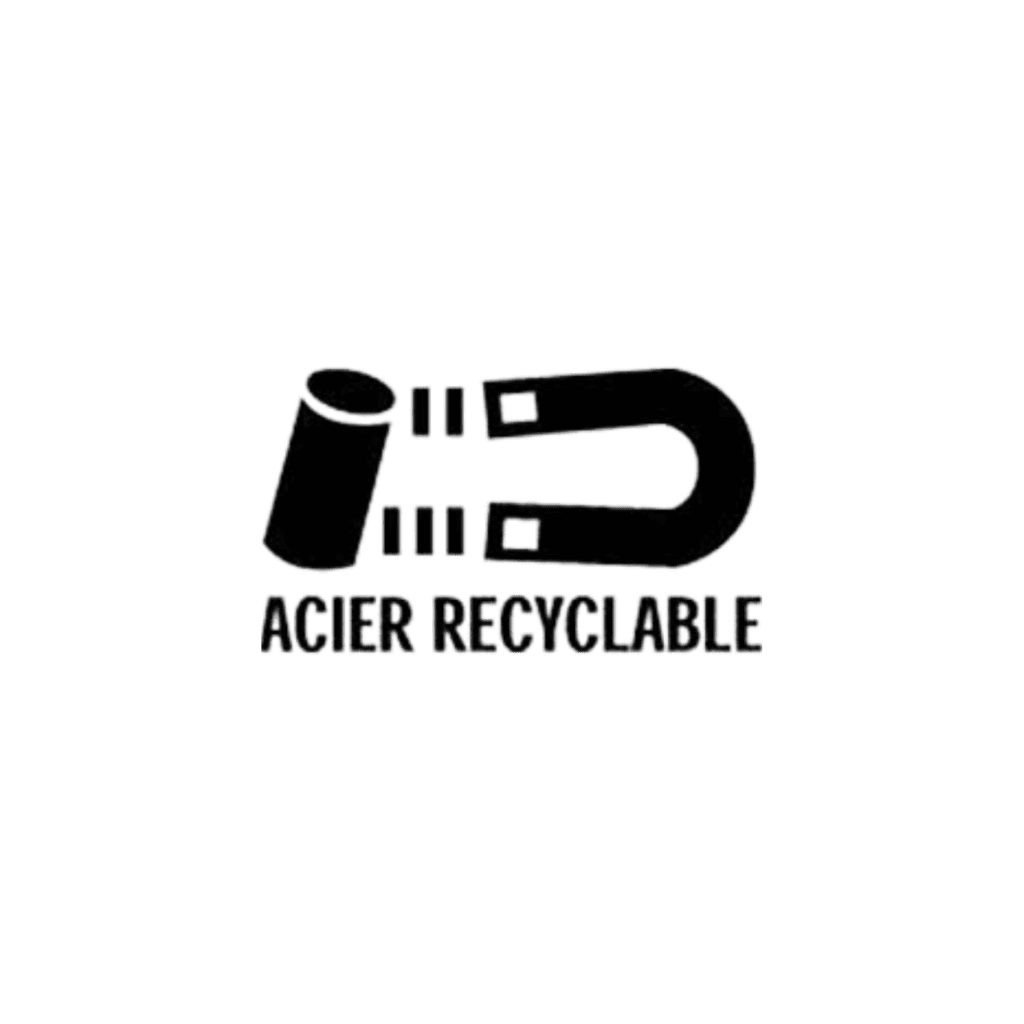
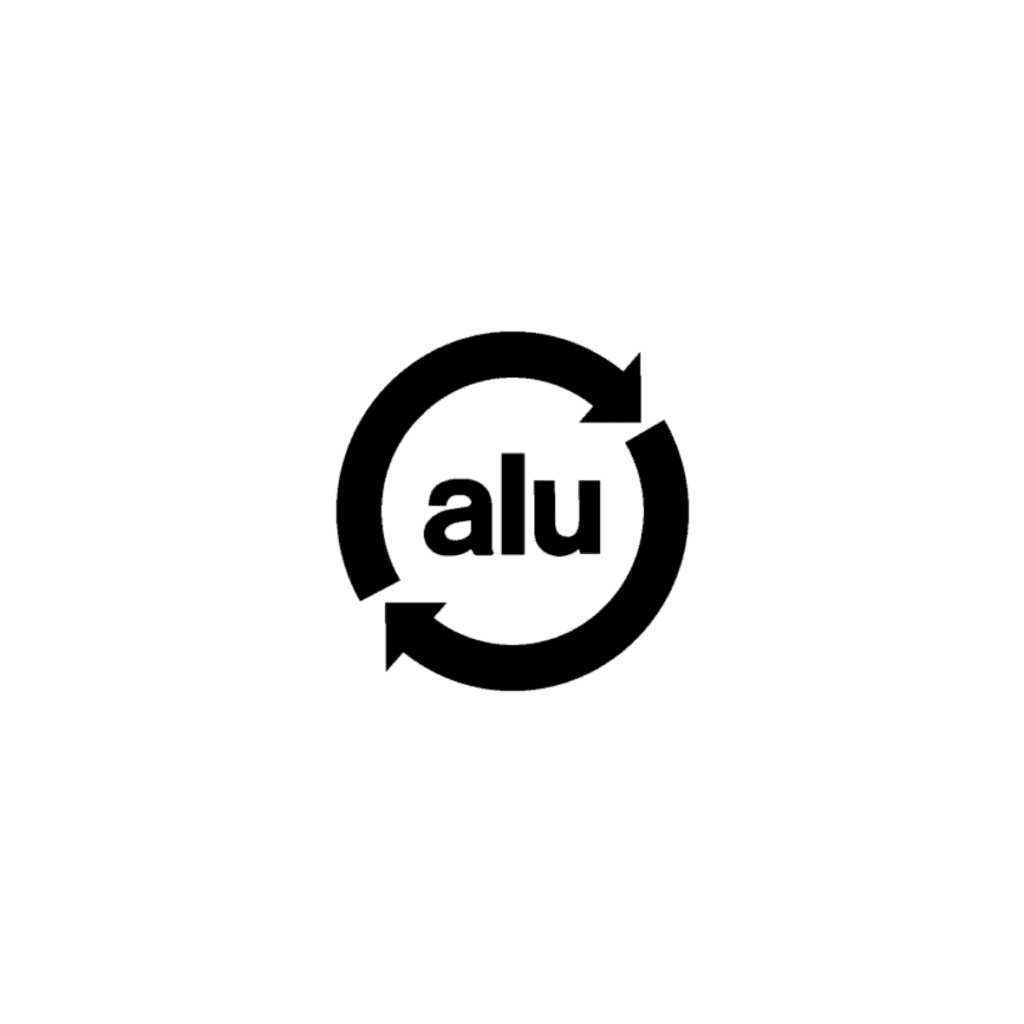
These mean that all steel / aluminum can be recycled, provided you bring them to the recycling center! They can be recycled via the classic circuit, but without guarantee (sorting via magnets or manuals, but not 100% reliable).
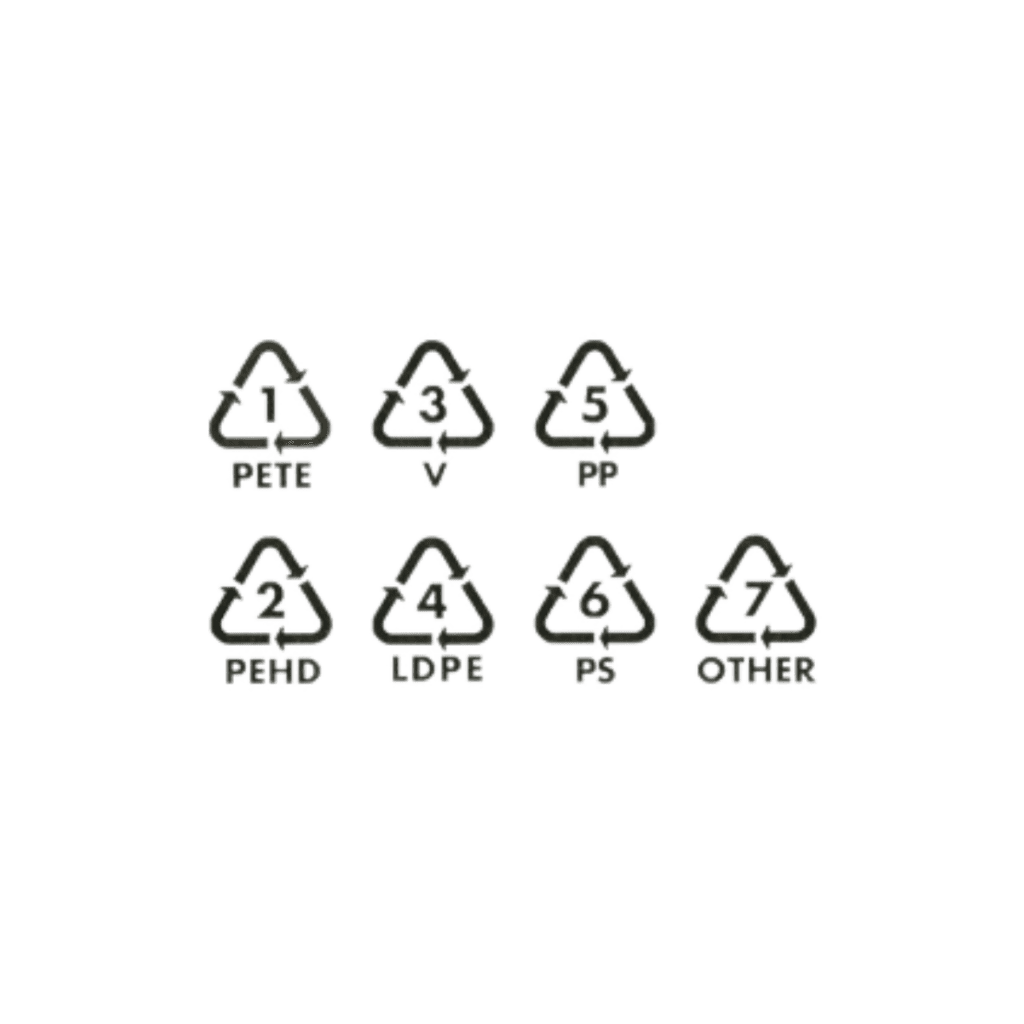
Plastics of all kinds (PET, HDPE, PVC, LDPE, etc.), the arrows have nothing to do with the notion of recycling. The only truly recyclable plastics are PET and HDPE. If you have read the latest Greenpeaks news you know that you can now put all the plastics in the yellow bin, in reality they will then be sorted by the machines.
The deceivers #greenwashing
This last part identifies the bad students, or let's say it: the cheaters. These are logos made from scratch by manufacturers / salespeople to give themselves a green and responsible image, but they are very often self-assigned labels, without conditions, without controls and without follow-up.
We find among them the classics [MARK] Green "," [BRAND] Act "," respects the environment "," green product "," biodegradable product » or the famous « voted favorite organic product of the [insert panel here] which only engage those who believe in it, but which are currently the acronyms that can drown us under the green wave of logos.

It means nothing other than that the manufacturer (who manufactured the object) pays a contribution to pilot sorting and recycling in France and in no case that the product is recyclable.
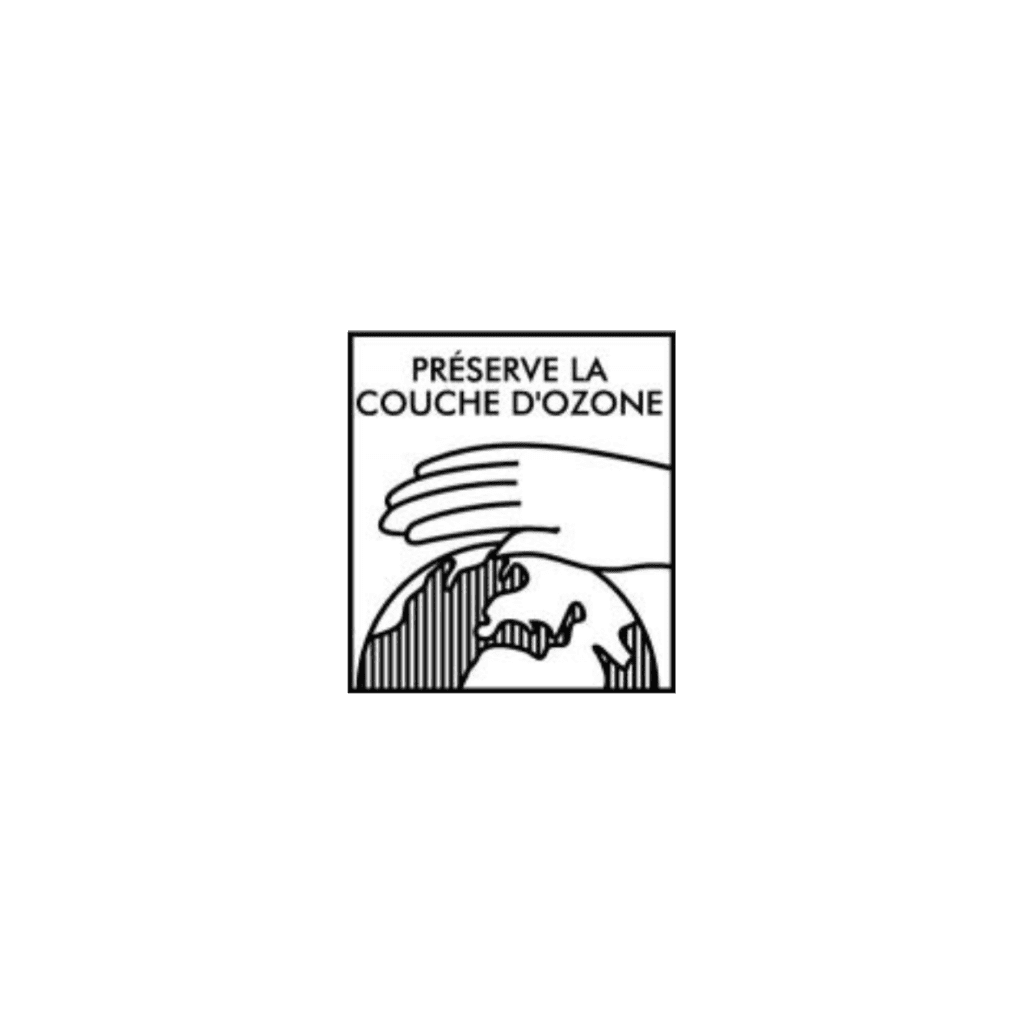
Means that the product does not use chlorofluorocarbon gas which has been banned since 1996.
The logo preserves the environment is a self-declaration of the company, no control, purely commercial. It is supposed to signify that the company pays attention to its environmental impact.
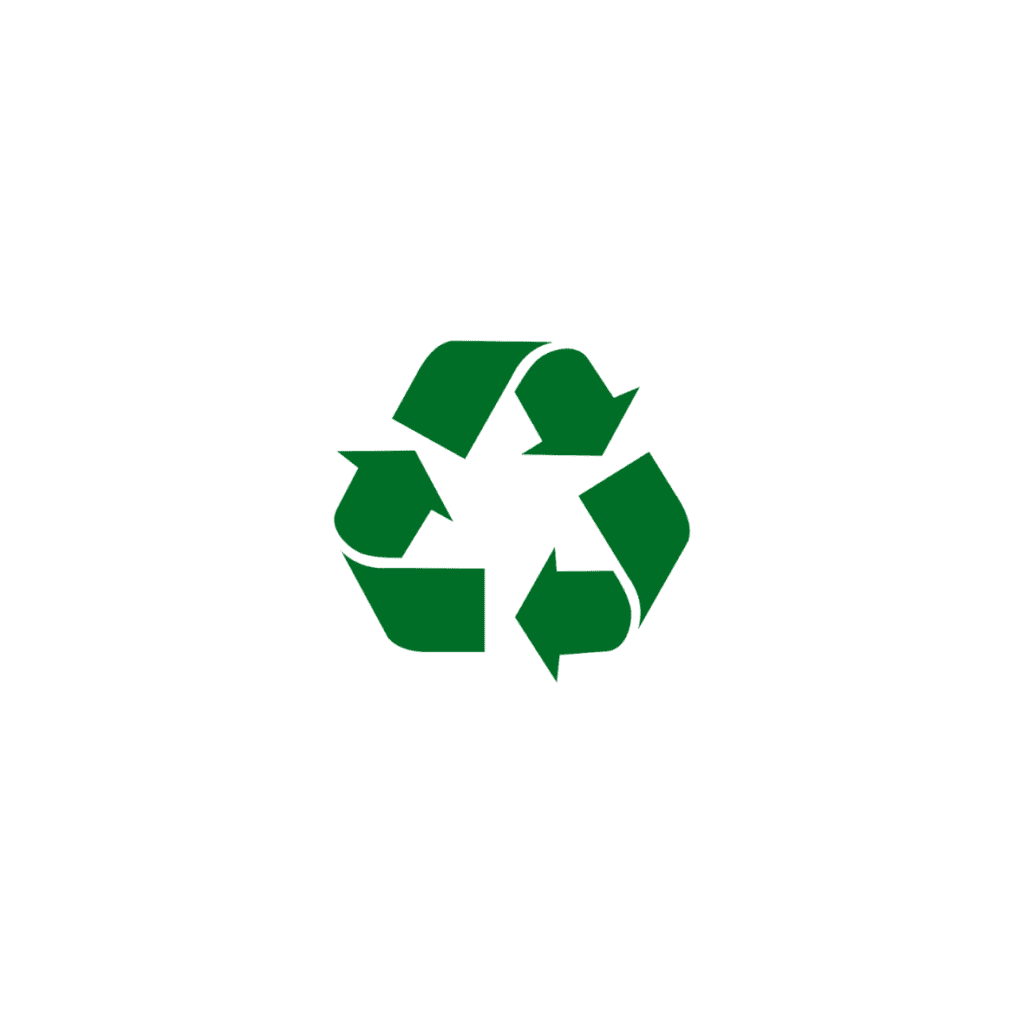
The best known because it is more historical (1970) but it just means that “technically” the product is recyclable, but it does not guarantee anything that your sorting center can do it.
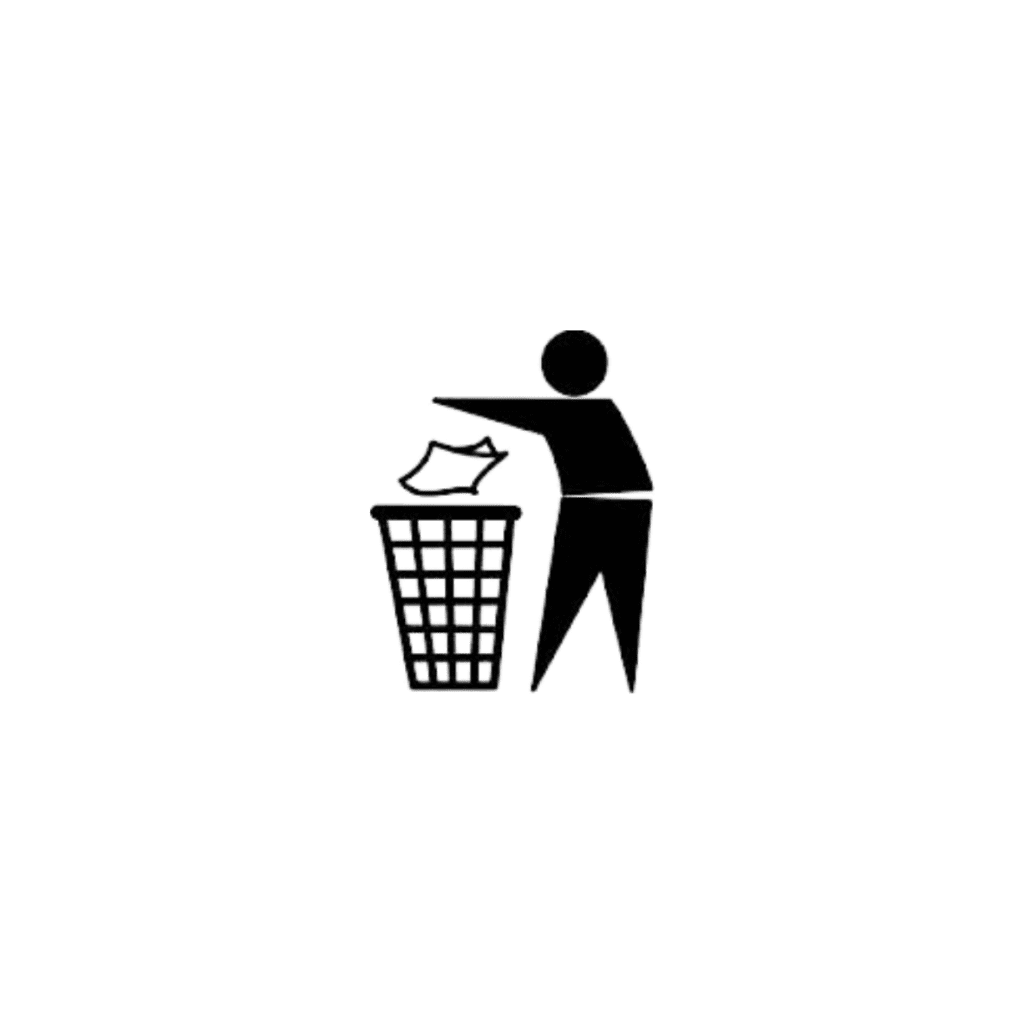
This one just asks you to throw your packaging in the trash and not in nature. THANKS.
This was a list of the best known but there are others, if you are interested, ADEME (Agency for the Environment and Energy Management) has put an online tool for listing environmental labels: https://www.ademe.fr/labels-environnementaux
Until then we remain available if you have any questions about an unknown label, and don't forget: stay vigilant! 😀
